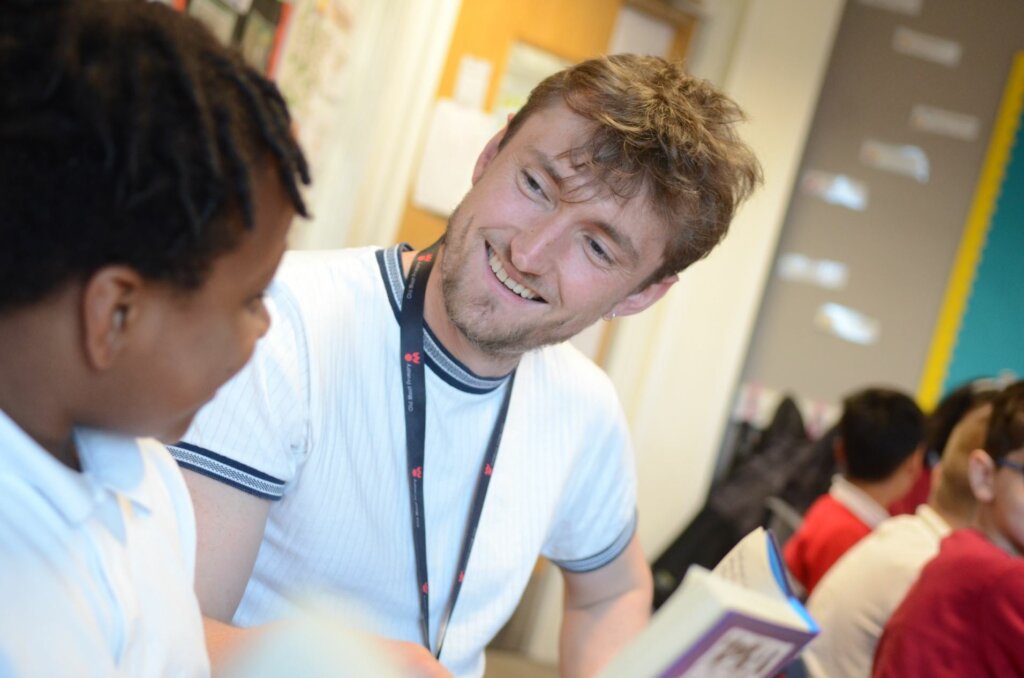A blog by Alison Drayton
What is Coaching?
When we think about coaching, many of us will imagine a figure similar to a sports coach, giving out instructions to improve a player’s performance. Leaders who misunderstand what effective coaching looks like will often borrow the same tactics, simply using coaching as a tool to tell others what to do. As a result, many will fail to see all the amazing benefits that coaching has to offer.
Coaching structures have been used in the NHS and business for years. The education sector has begun to use it as a tool to support school development. However, there are many myths and misconceptions about what coaching actually is and how effective it can be.
This blog will explore what coaching really means and the benefits it can bring to your school.
“Even in a hierarchy, people can be equal as thinkers.”
– Nancy Kline
How does coaching work?
The truth is that coaching is simply a two-way dialogue where the intention, as a coach, is to genuinely involve the other person in finding solutions through a process of effective questioning and listening with an open mind.
The questions asked are mainly open-ended, designed to raise awareness from within the coachee to help them reflect on their goals, their current situation, and the steps they can take to move forward, whilst also encouraging them to take personal responsibility and action for themselves.
Most importantly, the questions within coaching encourage staff to think for themselves, rather than waiting for an answer to come to them from above. As a result, staff can improve their confidence and self-sufficiency. This mirrors the teacher-pupil relationship, where we nurture pupils to grow in independence and take ownership of their learning.
The final steps in the coaching and learning process involves giving timely and effective feedback. This needs to be specific to the individual and their journey, ensuring adequate follow up and evaluation.
How does coaching work in an education setting?
“A manager’s ability to turn meetings into a thinking environment is probably an organisation’s
greatest asset.”
– Nancy Kline
As leaders and teachers, it is our role to drive progress and school development. Coaching is an everyday method of supporting and challenging others to deliver their best performance and results.
Evidence shows that coaching can be a key tool in improving educational outcomes. For example, in John Hattie’s meta-analysis of research, it was found that coaching can be used by both staff and students to create a powerful learning environment, as long as feedback is specifically linked to performance and peer-tutoring is learned as a skill.
Of course, we all know how busy school life can be. Perhaps you are already looking at your schedule and wondering where you will be able to squeeze coaching in. But that is exactly why it is so needed! Coaching gives us the space and time to think beyond our daily tasks, to focus on our goals, strategy and vision – all the things that motivate us to make our schools outstanding!
Consider all the following areas where coaching can be used to help improve your school:
- Within the leadership team to facilitate clarity around purpose and direction.
- Between leaders and staff to motivate and challenge performance.
- To conduct performance management reviews and any informal reviews of performance.
- To use as a problem solving tool to address specific issues or achieve specific goals.
- To be used by teachers in the classroom to promote more student engagement and effective learning.
- To encourage pupils to peer coach and tutor, give effective feedback and self-regulate behaviour.
- To more effectively deal with parental questions and challenges.
- To improve student and staff wellbeing through gaining a greater understanding of their current thinking, actions and suggestions.
In any situation that requires dialogue; the ability to elicit information; to improve understanding, to solve problems; to achieve something; to create independence; to develop self-awareness and greater awareness in others: and to ask others to take personal responsibility.
Remember that being a coach doesn’t mean you need to be an expert in everything – coaching is all about knowing the right questions to ask, so that others can gain the clarity and confidence to find their own solutions.
What are the benefits to the individual?
“Thinking for yourself is the thing on which everything else depends.”
– Nancy Kline
- Prevents staff becoming disengaged in their teaching or support role.
- Improves motivation by helping staff to develop ownership of the solution.
- Increases clarity, thereby saving time spent waiting for others to make decisions.
- Reduces stress by helping employees feel more in control of their work.
- Supports career progression and develops leadership at all levels: classroom, subject leadership and school leadership teams.
What are the benefits to the school?
“The quality of your attention determines the quality of other people’s thinking.”
– Nancy Kline
- Improved learning in the classroom – it raises self-awareness, deepens self-reflection, and delivers the most effective progress and results.
- Improved creativity in the classroom and across the school, allowing the school to thrive in today’s changing and challenging world, where speed of adaptation and innovation is so important.
- A greater openness for staff to share practice, take risks in trying new things, to admit and learn from mistakes and to create a whole school learning culture.
- Improved relationships – if you truly value your staff and students they will, in turn, value you and your needs.
- Provides much more time for leaders over the medium to long term – staff and students are more effective when they become more self-responsible and take greater personal initiative.
- Better use of talent and resources – leaders uncover people’s talents and encourage them to find answers to problems, meaning they shoulder less of the burden of having to find all the solutions themselves.
- Greater engagement from staff and students – by involving them in their work, sharing responsibility for learning and creating more independence.
How to develop a coaching culture in school?
Coaching has an overwhelming potential to empower school leaders, teachers and pupils, however it remains relatively new to the sector and many are unsure how to implement coaching effectively in their school.
Coaching works best when it is part of a whole school approach. Firstly, effective coaching relies on the ability of school leaders to see the potential in their team and their dedication to help them grow. As a leader, it is important to recognise you may not always have all the answers, but that they lie within the expertise and experience of your staff. Therefore, it is through a culture of mutual support, trust and respect that you can find the solutions and ensure any challenges are collaboratively resolved.
Similarly, it is important for staff to practise self-awareness, patience, integrity and hold an interest in others. Coaching is only successful when people work together, so it is important to be objective and non-judgemental in your relationships with colleagues.
What Next?
If you would like help with developing a whole school approach to coaching, or if you would like coaching sessions then One Education offer 1:1 support with school leaders and teams.
We can also provide CPD on how to develop a coaching culture in school. This course is available from our media page or can be delivered live. The session supports the initial skills needed to move from mentoring to coaching and supports leaders to find the best starting point to introduce coaching into the specific context of their school.
Qualified Coaches at One Education: Jo Gray, Ella Hughes and Alison Drayton.
Please get in touch to find out more.

ABOUT THE AUTHOR: Alison is a high performing headteacher of an Outstanding Primary School in North West England, one of the top 10% in the country under the current framework. She leads a values-based school where she takes great pride in fostering and nurturing leadership at all levels. She currently works with One Education, in the North West of England, as a leadership coach with headteachers and deputies offering bespoke professional development within the coaching framework. She believes that the coaching space is key to leadership excellence to raise the quality of their practice and, therefore, outcomes for children.
















